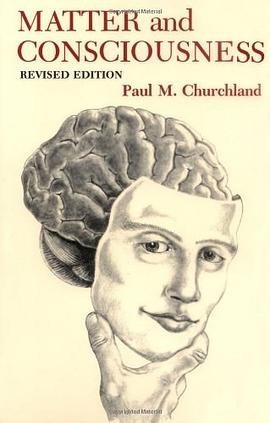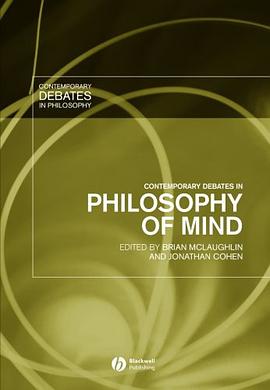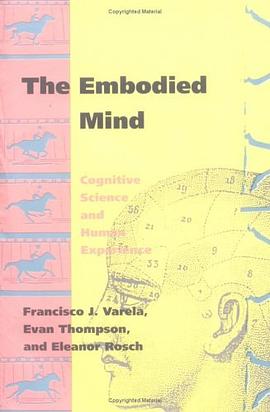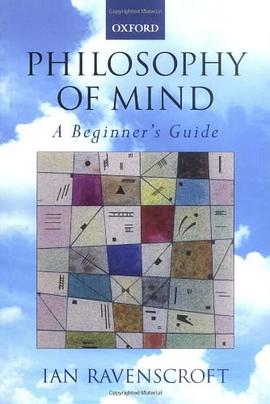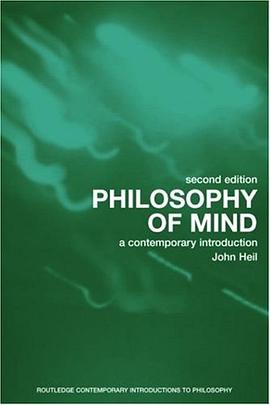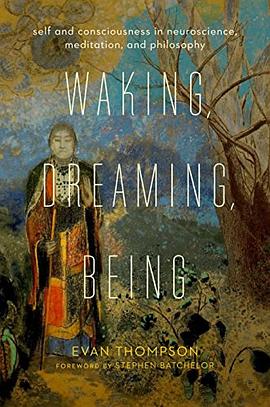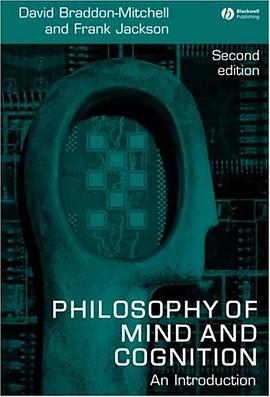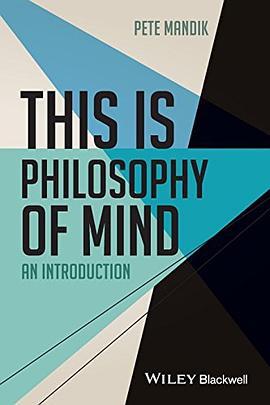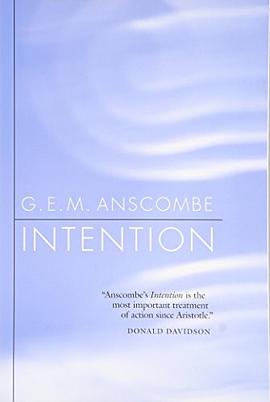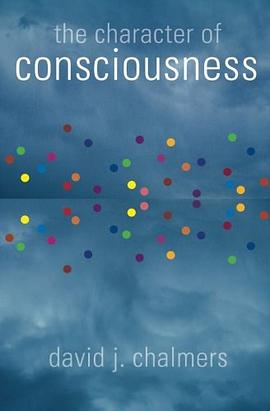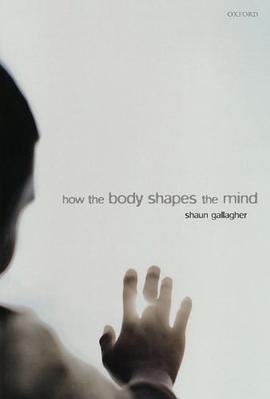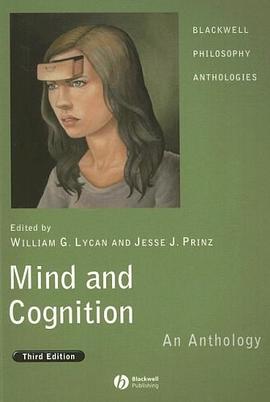
Mind and Cognition pdf epub mobi txt 电子书 下载 2026
- 心灵哲学
- 哲学
- 心理学
- 认知科学
- mind
- 英文原版
- 哲学文选
- of
- 认知科学
- 心智哲学
- 神经科学
- 人工智能
- 心理学
- 语言学
- 意识研究
- 认知心理学
- 脑科学
- 思维模型

具体描述
First published in 1990, Mind and Cognition: An Anthology is now firmly established as a popular teaching apparatus for upper level undergraduate and graduate courses in the philosophy of mind. Brings together the most important classic and contemporary articles in philosophy of mind and cognition Completely revised and updated throughout, in response to feedback from teachers in the field Now includes 20 new readings Each updated part opens with a brief, synoptic introduction to the individual field and a comprehensive further reading list Each section also includes three to four of the most influential papers that have been written in the philosophy of mind over the last 40 years
作者简介
William G. Lycan is Professor of Philosophy at the University of North Carolina at Chapel Hill. He has published widely in the field of philosophy of mind and language. His publications include Consciousness (1987), Judgement and Justification (1988), and Consciousness and Experience (1996).
Jesse J. Prinz is Professor of Philosophy at the University of North Carolina at Chapel Hill. He works primarily in the philosophy of mind and cognitive science. His books include Furnishing the Mind: Concepts and Their Perceptual Basis (2002), Gut Reactions: A Perceptual Theory of Emotion (2004), and The Emotional Construction of Morals (2007).
目录信息
Preface to the First Edition.
Acknowledgements.
Part I: Ontology: The Identity Theory and Functionalism:.
Introduction.
Behaviorism.
1. Excerpt from About Behaviorism: B. F. Skinner.
The Identity Theory and Machine Functionalism.
2. Is Consciousness a Brain Process?: U. T. Place.
Causal and Functionalist Views.
3. The Causal Theory of Mind: D. M. Armstrong.
4. The Nature of Mental States: Hilary Putnam.
5. Troubles with Functionalism (excerpt): Ned Block.
Anomalous Monism.
6. Mental Events: Donald Davidson.
Homuncular and Teleological Functionalism.
7. The Continuity of Levels of Nature: William G. Lycan.
Part II: Intentionality:.
Introduction.
Psychosemantics.
8. Information and Representation: Jerry A. Fodor.
9. Biosemantics: Ruth Garrett Millikan.
10. A Guide to Naturalizing Semantics (excerpt): Barry Loewer.
Other Approaches to Intentionality.
11. Modality, Normativity, and Intentionality: Robert Brandom.
Part III: The Computational Theory of Mind and Artificial Intelligence.
Introduction.
The Language of Thought and Computationalism.
12. Why There Has to Be and How There Could Be a Private Language: Jerry A. Fodor.
13. Which Language Do We Think With?: Peter Carruthers.
Artificial Intelligence.
14. Semantic Engines: An Introduction to Mind Design: John Haugeland.
15. Can Computers Think?: John R. Searle.
Part IV: Eliminativism, Neurophilosophy, and Anti-Representationalism.
Introduction.
Eliminativism.
16. Eliminative Materialism and the Propositional Attitudes: Paul M. Churchland.
Connectionism.
17. Neural Representation and Neural Computation: Patricia Smith Churchland and Terrence Sejnowski.
18. Connectionism and Cognitive Architecture (excerpt): Jerry A. Fodor and Zenon W. Pylyshyn.
Dynamical Systems Theory and Robotics.
19. What Might Cognition Be, If Not Computation?: Tim Van Gelder.
20. Intelligence Without Representation: Rodney A. Brooks.
Part V: Instrumentalism and Folk Psychology.
Introduction.
Instrumentalism.
21. True Believers: The Intentional Strategy and Why it Works: Daniel C. Dennett.
22. Dennett on Intentional Systems: Stephen P. Stich.
23. Real Patterns: Daniel C. Dennett.
Simulationism and the Theory Theory.
24. Folk Psychology as Simulation: Robert M. Gordon.
25. Folk Psychology: Simulation or Tacit Theory? (excerpt): Stephen P. Stich and Shaun Nichols.
Part VI: Mental Causation, Externalism, and Self-Knowledge.
Introduction.
For and Against Folk Psychology.
26. Autonomous Psychology and the Belief--Desire Thesis: Stephen P. Stich.
27. Folk Psychology is Here to Stay: Terence Horgan and James Woodward.
Supervenient Causation.
28. Mental Causation: Jaegwon Kim.
29. Type Epiphenomenalism, Type Dualism, and the Causal Priority of the Physical: Brian P. McLaughlin.
For and Against Externalism.
30. Individualism and Supervenience: Jerry A. Fodor.
31. The Argument from Causal Powers: Robert A. Wilson.
32. Reference, Causal Powers, Externalist Intuitions, and Unicorns: Gabriel M. A. Segal.
Self-Knowledge.
33. Knowing One’s Own Mind: Donald Davidson.
34. Externalism and Inference: Paul A. Boghossian.
Radical Externalism.
35. The Extended Mind: Andy Clark and David J. Chalmers.
Part VII: Consciousness, Qualia, and Subjectivity.
Introduction.
What Is Consciousness?.
36. How Not to Find the Neural Correlate of Consciousness: Ned Block.
37. What Should We Expect from a Theory of Consciousness?: Patricia S. Churchland.
38. Consciousness and its Place in Nature (excerpt): David J. Chalmers.
Conscious Awareness.
39. A Theory of Consciousness (excerpt): David M. Rosenthal.
40. The Superiority of HOP to HOT: William G. Lycan.
41. Perception without Awareness: Fred Dretske.
What It’s Like.
42. Epiphenomenal Qualia: Frank Jackson.
43. Understanding the Phenomenal Mind: Are We All Just Armadillos?: Robert Van Gulick.
Qualia.
44. The Intrinsic Quality of Experience: Gilbert Harman.
45. Sensation and the Content of Experience: Christopher Peacocke.
46. Blurry Images, Double Vision, and Other Oddities: Michael Tye.
Part VIII: Perceptual Content.
Introduction.
47. Simple Seeing: Fred Dretske.
48. Excerpts from The Varieties of Reference: Gareth Evans.
49. Non-conceptual Content: John McDowell.
50. Experience Without the Head: Alva Noë.
Part IX: Animal Minds.
Introduction.
51. Rational Animals: Donald Davidson.
52. The Problem of Simple Minds: Is There Anything it is Like to be a Honey Bee?: Michael Tye.
53. Why the Question of Animal Consciousness Might Not Matter Very Much: Peter Carruthers.
Part X: Emotion.
Introduction.
54. Emotions and Choice: Robert C. Solomon.
55. Embodied Emotions: Jesse Prinz.
56. Is Emotion a Natural Kind?: Paul E. Griffiths.
Index
· · · · · · (收起)
读后感
评分
评分
评分
评分
用户评价
编排上相当充分详实的一部文选。从行为主义出发,涉及到了心身同一论、功能主义、取消论、工具主义等,也安排了表象、人工智能模型、感质、知觉、动物心灵等当代论题。所选的文章一般都是相关主题下比较有代表性或奠基作用的文章。文集的令人不满之处主要在于编者的倾向性太明显:由于认知科学对心灵哲学的介入,编者完全认为较早的理论已经被超越。例如,他们对行为主义采取了一种同一论以来非常流俗的批评,完全没有收录维特根斯坦、赖尔等人富有哲学蕴味的著作,而只收录了斯金纳方法论性质的宣言。再比如对于扩展心灵、生成进路和具身进路,仅仅有边缘的涉及,而观念论更是被斥为朽坏的老古董。相反地,像Tye、Carruthers和Dretske这样缺乏哲学敏感性的作者的著作却大行其道,读者读下来只学到些理论,很难受到什么深刻的启发。
评分编排上相当充分详实的一部文选。从行为主义出发,涉及到了心身同一论、功能主义、取消论、工具主义等,也安排了表象、人工智能模型、感质、知觉、动物心灵等当代论题。所选的文章一般都是相关主题下比较有代表性或奠基作用的文章。文集的令人不满之处主要在于编者的倾向性太明显:由于认知科学对心灵哲学的介入,编者完全认为较早的理论已经被超越。例如,他们对行为主义采取了一种同一论以来非常流俗的批评,完全没有收录维特根斯坦、赖尔等人富有哲学蕴味的著作,而只收录了斯金纳方法论性质的宣言。再比如对于扩展心灵、生成进路和具身进路,仅仅有边缘的涉及,而观念论更是被斥为朽坏的老古董。相反地,像Tye、Carruthers和Dretske这样缺乏哲学敏感性的作者的著作却大行其道,读者读下来只学到些理论,很难受到什么深刻的启发。
评分编排上相当充分详实的一部文选。从行为主义出发,涉及到了心身同一论、功能主义、取消论、工具主义等,也安排了表象、人工智能模型、感质、知觉、动物心灵等当代论题。所选的文章一般都是相关主题下比较有代表性或奠基作用的文章。文集的令人不满之处主要在于编者的倾向性太明显:由于认知科学对心灵哲学的介入,编者完全认为较早的理论已经被超越。例如,他们对行为主义采取了一种同一论以来非常流俗的批评,完全没有收录维特根斯坦、赖尔等人富有哲学蕴味的著作,而只收录了斯金纳方法论性质的宣言。再比如对于扩展心灵、生成进路和具身进路,仅仅有边缘的涉及,而观念论更是被斥为朽坏的老古董。相反地,像Tye、Carruthers和Dretske这样缺乏哲学敏感性的作者的著作却大行其道,读者读下来只学到些理论,很难受到什么深刻的启发。
评分编排上相当充分详实的一部文选。从行为主义出发,涉及到了心身同一论、功能主义、取消论、工具主义等,也安排了表象、人工智能模型、感质、知觉、动物心灵等当代论题。所选的文章一般都是相关主题下比较有代表性或奠基作用的文章。文集的令人不满之处主要在于编者的倾向性太明显:由于认知科学对心灵哲学的介入,编者完全认为较早的理论已经被超越。例如,他们对行为主义采取了一种同一论以来非常流俗的批评,完全没有收录维特根斯坦、赖尔等人富有哲学蕴味的著作,而只收录了斯金纳方法论性质的宣言。再比如对于扩展心灵、生成进路和具身进路,仅仅有边缘的涉及,而观念论更是被斥为朽坏的老古董。相反地,像Tye、Carruthers和Dretske这样缺乏哲学敏感性的作者的著作却大行其道,读者读下来只学到些理论,很难受到什么深刻的启发。
评分编排上相当充分详实的一部文选。从行为主义出发,涉及到了心身同一论、功能主义、取消论、工具主义等,也安排了表象、人工智能模型、感质、知觉、动物心灵等当代论题。所选的文章一般都是相关主题下比较有代表性或奠基作用的文章。文集的令人不满之处主要在于编者的倾向性太明显:由于认知科学对心灵哲学的介入,编者完全认为较早的理论已经被超越。例如,他们对行为主义采取了一种同一论以来非常流俗的批评,完全没有收录维特根斯坦、赖尔等人富有哲学蕴味的著作,而只收录了斯金纳方法论性质的宣言。再比如对于扩展心灵、生成进路和具身进路,仅仅有边缘的涉及,而观念论更是被斥为朽坏的老古董。相反地,像Tye、Carruthers和Dretske这样缺乏哲学敏感性的作者的著作却大行其道,读者读下来只学到些理论,很难受到什么深刻的启发。
相关图书
本站所有内容均为互联网搜索引擎提供的公开搜索信息,本站不存储任何数据与内容,任何内容与数据均与本站无关,如有需要请联系相关搜索引擎包括但不限于百度,google,bing,sogou 等
© 2026 book.quotespace.org All Rights Reserved. 小美书屋 版权所有


